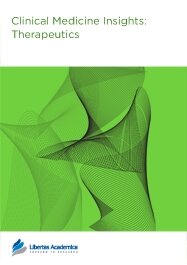

Publication Date: 09 Jun 2011
Type: Review
Journal: Clinical Medicine Insights: Therapeutics
Citation: Clinical Medicine Insights: Therapeutics 2011:3 233-243
doi: 10.4137/CMT.S3153

In 2006 a third echinocandin, anidulafungin, was approved in the USA for the treatment of candida esophagitis, candidemia, and invasive candida infections such as intra-abdominal abscesses and peritonitis in the non-neutropenic patient. Two years later it was approved in the EU for invasive candidiasis in non-neutropenic patients. Like other echinocandins, it is fungicidal against Candida species and fungistatic against Aspergillus species. It does not need adjustment for renal or hepatic insufficiency, and has no known drug interactions. Its administration is by the intravenous route only, and it is well tolerated. A steady state concentration can be achieved on day two by giving twice the maintenance dose on day one.
PDF (567.01 KB PDF FORMAT)
RIS citation (ENDNOTE, REFERENCE MANAGER, PROCITE, REFWORKS)
BibTex citation (BIBDESK, LATEX)

Traditional vehicles of medical publication could learn constructive lessons of efficiency from the editors of Libertas Academica!

All authors are surveyed after their articles are published. Authors are asked to rate their experience in a variety of areas, and their responses help us to monitor our performance. Presented here are their responses in some key areas. No 'poor' or 'very poor' responses were received; these are represented in the 'other' category.See Our Results
Copyright © 2013 Libertas Academica Ltd (except open access articles and accompanying metadata and supplementary files.)
Facebook Google+ Twitter
Pinterest Tumblr YouTube